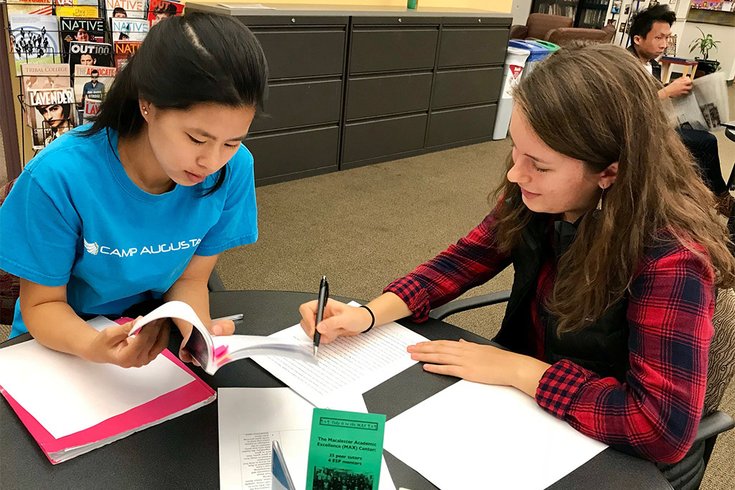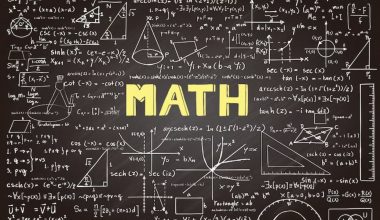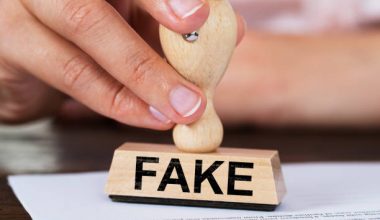When it comes to excelling in your GCSE Physics, having the right guidance can make all the difference. You may need to get a GCSE Physics tutor. Physics tutors play a pivotal role in helping students grasp complex concepts and achieve their academic goals.
In 2024, the demand for qualified physics tutors is higher than ever, as students recognize the value of personalized learning.
According to recent studies, 85% of students who receive one-on-one tutoring show significant improvement in their academic performance.
If you’re on the hunt for the best GCSE physics tutors, this article is here to guide you through the process and provide answers to your most pressing questions.
Table of contents
- How Important is a Physics Tutor?
- What Qualities Should You Look for in a Physics Tutor?
- Where Can You Find Physics Tutors?
- How Much Does Physics Tutoring Cost?
- Is Group Tutoring as Effective as One-on-One Sessions?
- How Can You Assess a Tutor’s Teaching Style?
- What Role Does Technology Play in Physics Tutoring?
- How Can You Set and Measure Learning Goals with Your Tutor?
- What Questions Should You Ask During a Tutor Selection Process?
- How Can You Make the Most of Your Physics Tutoring Sessions?
- FAQs
- Conclusion
- References
- Recommendations
How Important is a Physics Tutor?
GCSE Physics is one of the hardest GCSE subjects. You will need to get a tutor to help you out.
A physics tutor plays a crucial role in your GCSE journey, offering personalized guidance that aligns with your learning style. A tutor breaks down complex concepts using relatable examples and encourages active participation.
With a tutor’s assistance, you navigate the intricacies of physics, building a strong foundation and boosting your confidence.
Questions find immediate answers, hesitations dissipate, and your progress becomes steady. A tutor creates an open learning environment where no concept is left unexplored, ensuring you grasp each idea step by step.
On the path to mastering GCSE Physics, a tutor’s presence transforms challenges into conquerable feats, making your academic goals achievable.
See also: Why Many Fail GCSE Exams in 2024
What Qualities Should You Look for in a Physics Tutor?
When searching for the right physics tutor, several key qualities should guide your choice. We’ll briefly talk about them below:
- Experience matters greatly; opt for tutors with a solid background and a track record of success.
- Qualifications are paramount; look for those with relevant degrees and teaching credentials.
- Effective communication is vital; a tutor who explains concepts clearly and encourages questions is invaluable.
- Adaptability is key; the ability to tailor lessons to your learning style ensures optimal understanding.
- Patience is a virtue; a tutor who remains patient while you grasp challenging concepts can make a significant difference.
- Engagement is essential; tutors who keep you actively involved and interested enhance your learning journey.
- Feedback is invaluable; a tutor who provides constructive feedback helps you pinpoint areas for improvement.
- Reliability is a must; punctuality and consistency demonstrate commitment to your progress.
- Empathy matters; a tutor who understands your struggles and aspirations fosters a positive learning atmosphere.
- Reviews and testimonials offer insights; learning about others’ experiences can guide your decision effectively.
See also: Quizlet Review – How to Use it and Best Practices
Where Can You Find Physics Tutors?
Physics tutors are readily available through various channels, making your search convenient and accessible. Below are the various channels where you can find the best GCSE physics tutors.
- Online tutoring platforms offer a vast selection of tutors, allowing you to connect globally.
- Educational websites often feature tutor directories, simplifying your hunt.
- Local tutoring centers provide in-person options for those seeking face-to-face interactions.
- School or college bulletin boards may display tutor ads within your immediate community.
- Social media groups can be treasure troves of recommendations and connections to experienced tutors.
- Word of mouth remains a powerful tool, so don’t hesitate to ask friends, classmates, or teachers for referrals.
- Education fairs or events might introduce you to potential tutors.
- Online classifieds or job listing websites may have tutor listings in your area.
- Community centers or libraries sometimes host tutoring programs.
- Education apps often include features to connect with tutors.
In your quest for the perfect physics tutor, explore these diverse resources to find an option that suits your preferences and learning style.
See also: GCSE English Language Past Papers in 2024 Likely Exam Questions
How Much Does Physics Tutoring Cost?
How much tutors charge in UK can vary depending on factors like the tutor’s experience, location, and mode of instruction.
For instance, online tutors may offer different rates than in-person sessions. Moreover, rates can range from $30 to $100 per hour on average. Additionally, some tutors offer packages or discounted rates for multiple sessions.
However, it’s important to weigh the cost against the value gained in terms of improved grades and understanding. In addition to this, consider the potential long-term benefits of a solid grasp of physics concepts.
Consequently, investing in tutoring now could lead to higher academic achievements in the future. On the other hand, some platforms provide free or low-cost resources, which could be a more budget-friendly option.
To sum up, while physics tutoring might entail an expense, its potential to enhance your learning and boost your confidence makes it a valuable investment in your education.
See also: GCSE 2024: Why I need to write a GCSE in 2024
Is Group Tutoring as Effective as One-on-One Sessions?
Group tutoring and one-on-one sessions each offer distinct benefits. Group sessions can foster collaboration and shared learning experiences. However, individual attention in one-on-one sessions allows tutors to focus directly on your needs.
Moreover, group dynamics can encourage diverse perspectives, while individual sessions provide tailored guidance. Additionally, in a group, you might learn from your peers’ questions, yet one-on-one, you can delve deeper into specific topics.
On the other hand, group settings might lack personalized pacing, while one-on-one tutoring adapts to your learning speed. In addition to this, one-on-one sessions allow you to address personal challenges without hesitation.
See also: GCSE Grade Boundaries Explained | All You Need to Know in 2024
How Can You Assess a Tutor’s Teaching Style?
Assessing a tutor’s teaching style is crucial for a productive learning experience. You need to observe how they explain concepts – a tutor who simplifies complex ideas into understandable terms is valuable.
Moreover, pay attention to their approachability; a tutor who encourages questions and discussions creates an open learning environment.
Additionally, evaluate their adaptability – can they adjust their teaching to match your learning pace and preferences? However, keep in mind that patience is key – a tutor who remains patient as you grasp new concepts is a positive sign.
On the other hand, a tutor who engages you actively in lessons, rather than just lecturing, can enhance your understanding. In addition to this, feedback is important; a tutor who provides constructive criticism helps you improve.
To sum up, a tutor’s teaching style should resonate with your learning needs, fostering a comfortable and effective learning journey.
See also: Top 15 Easiest GCSE Subjects in 2024
What Role Does Technology Play in Physics Tutoring?
Technology is a game-changer in modern physics tutoring. Moreover, it brings interactive simulations and multimedia resources into lessons, making learning engaging and effective. Furthermore, educational apps offer an array of visual aids, simplifying complex ideas for better understanding.
Additionally, technology facilitates instant communication between you and your tutor, whether you’re in the same city or across the globe.
On the other hand, it enables real-time problem-solving through online platforms, giving you immediate solutions to challenges. In addition to this, virtual whiteboards and screen-sharing enhance explanations, ensuring clarity.
However, technology should complement, not replace, human interaction – a skilled tutor’s guidance remains irreplaceable. To sum up, technology revolutionizes physics tutoring by providing dynamic tools for learning, connecting you to resources and experts, and bringing visual clarity to intricate concepts.
Its integration into tutoring sessions enriches the learning experience and equips you with the skills needed for success in GCSE Physics and beyond.
See also: EdPlace Review – How it works | Is it Legit or Scam
How Can You Set and Measure Learning Goals with Your Tutor?
Collaborating with your physics tutor to establish and evaluate learning goals is pivotal. Moreover, effective communication is the cornerstone – discuss your aspirations and challenges openly. Furthermore, work together to outline specific objectives for each session.
In addition to this, use clear and measurable terms to define what you want to achieve. However, remember that setting realistic goals is key – aiming for gradual progress ensures attainable milestones. Additionally, seek your tutor’s guidance in creating a structured plan that aligns with your goals.
On the other hand, regularly review your progress to track improvement – this can be done through regular quizzes or mock exams. Furthermore, your tutor’s feedback is crucial; they provide insights into your strengths and areas needing more attention.
Consequently, flexibility is essential; learning goals may evolve, and your tutor can adapt the plan accordingly. To sum up, setting and measuring learning goals with your tutor fosters a targeted and purposeful learning journey.
By working collaboratively and maintaining open communication, you can ensure that your GCSE Physics tutoring sessions align with your aspirations and lead you toward academic success.
See also: How to Get a 9 in GCSE Maths in Less than 2 Months
What Questions Should You Ask During a Tutor Selection Process?
Selecting the right physics tutor involves asking insightful questions to ensure a compatible match. Moreover, inquire about their teaching philosophy – understanding their approach helps you gauge if it aligns with your learning style. Furthermore, discuss their experience with the GCSE physics curriculum; this ensures they’re well-versed in the content you need.
Additionally, inquire about their availability and flexibility – knowing their schedule ensures your sessions can be conveniently arranged. On the other hand, ask about their strategies for handling challenging topics – their methods should encourage your understanding. In addition to this, request details about their success stories with past students – this sheds light on their ability to drive results.
However, ensure you’re clear about their tutoring methods – whether they rely on textbooks, interactive tools, or real-world examples. Furthermore, explore how they address different learning paces – effective tutors tailor their teaching to your speed. Consequently, ask about their communication frequency and feedback practices – regular updates keep you informed.
To sum up, the right questions provide valuable insights into a potential tutor’s suitability, ensuring a productive and successful GCSE Physics tutoring experience.
See also: Best Gifts for Passing Exams for Your Child in 2024?
How Can You Make the Most of Your Physics Tutoring Sessions?
To optimize your physics tutoring sessions, active participation is key. Furthermore, come prepared with specific questions or topics you want to address during the session. Moreover, take notes during the lesson to review afterward – this reinforces your understanding.
Additionally, practice problem-solving during the session, using tutor-guided examples or exercises. On the other hand, ensure you clarify doubts immediately – don’t hesitate to seek explanations when something isn’t clear. In addition to this, engage in discussions – sharing your thoughts and hearing your tutor’s perspective deepens your understanding.
However, consistent effort is essential – regular sessions yield better results than last-minute cramming. Furthermore, review the material covered in previous sessions before each new lesson – this keeps concepts fresh in your mind. Consequently, set small achievable goals for each session – breaking down larger concepts into manageable steps boosts your confidence.
To sum up, by actively participating, preparing ahead, practicing problem-solving, clarifying doubts, engaging in discussions, maintaining consistency, reviewing, and setting goals, you can make the most of your physics tutoring sessions, ensuring maximum progress and success in your GCSE Physics studies.
See also: A-levels 2024: Everything You Need to Know
FAQs
To improve your exam technique for GCSE Physics, you should practice past papers and other resources to become familiar with the format and types of questions that may be asked. You should also ensure you manage your time effectively during the exam and answer all questions thoroughly.
Physics is quite often considered the most daunting Science for GCSE pupils since concepts are challenging and there is a high mathematical element.
Khan Academy.
Mashup Math.
Cbseclass videos.
Pebbles CBSE Board Syllabus.
Aman Dhattarwal.
IGCSEs are generally considered more challenging than GCSEs, although this will depend on the subject. However, both courses are designed to give students a world-class education and to equip them with the skills they need for further study or employment.
Conclusion
In the dynamic landscape of education, securing the right GCSE physics tutor can significantly impact your academic journey.
As you embark on the quest to find the best physics tutor in 2024, remember to prioritize qualifications, teaching style, and your personal learning preferences.
With the guidance of a skilled physics tutor, you can conquer challenging concepts, boost your confidence, and excel in your GCSE Physics examinations.
References
- Edumentors.co – How to Find GCSE Tutors and Choose Subjects for GCSE in 2024
- Indeed.com – How To Become a Physics Tutor
- Edumentors.co – How to Find the Perfect Physics and Maths Tutor?
Recommendations
- Quizlet Review – How to use it and Best Practices
- Is Cramming for a Test Really Effective? All you need to Know in 2024
- Why is the PSAT important? And Which School Accepts It
- How To Study For GED In Less Time | 2024 Timetable, Schedules
- Do AP Test Scores Affect Your Acceptance Chance in 2024?
- GCSE Grade Boundaries Explained | All You Need to Know in 2024
- Top 15 Easiest GCSE Subjects in 2024
- All GCSE Subjects: Why You Need to Make the Choices You Made






